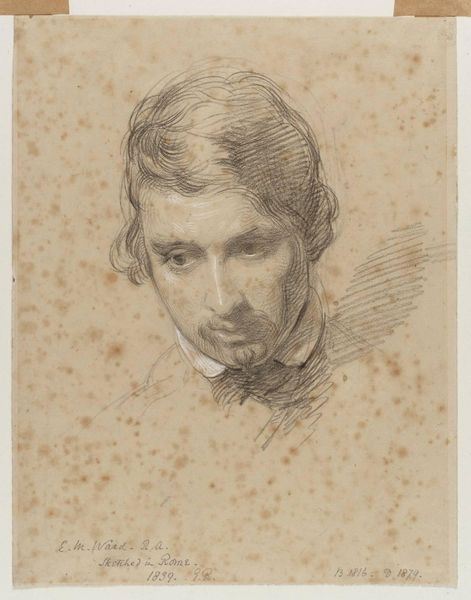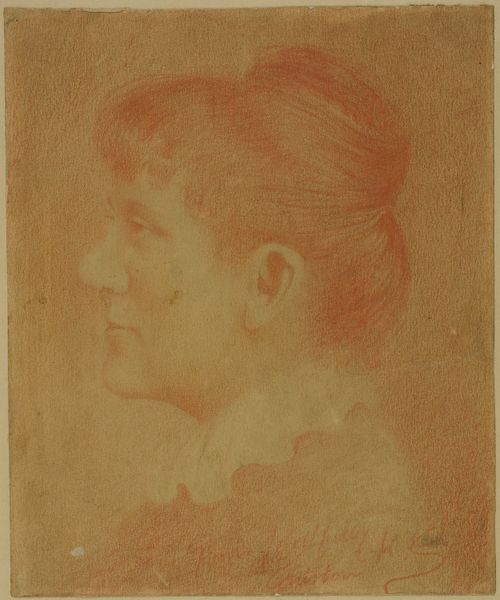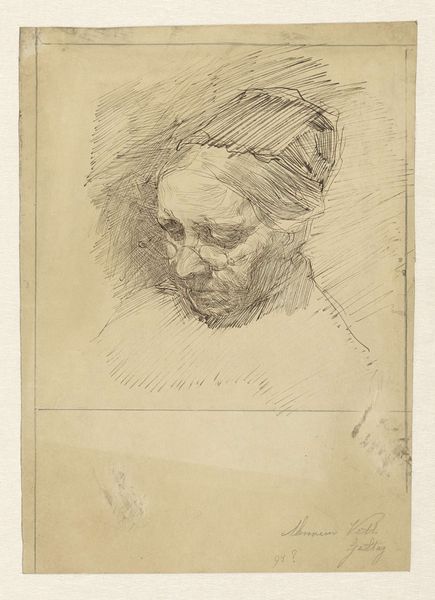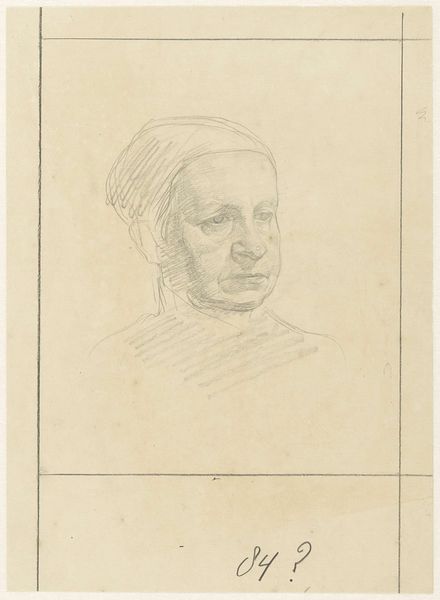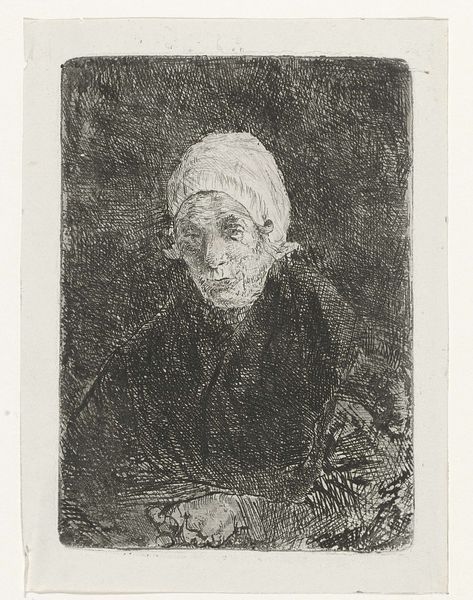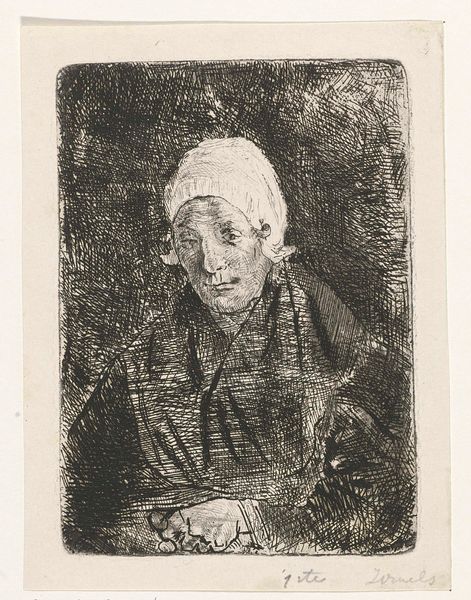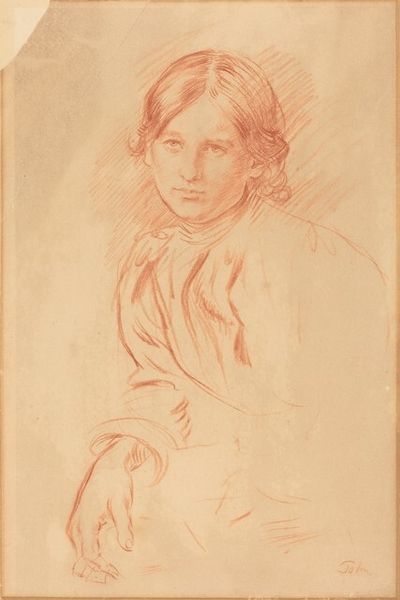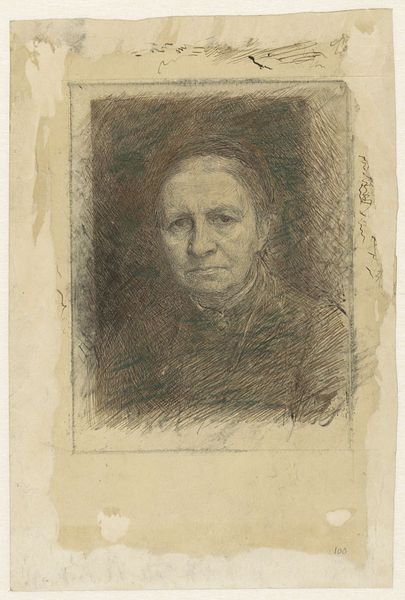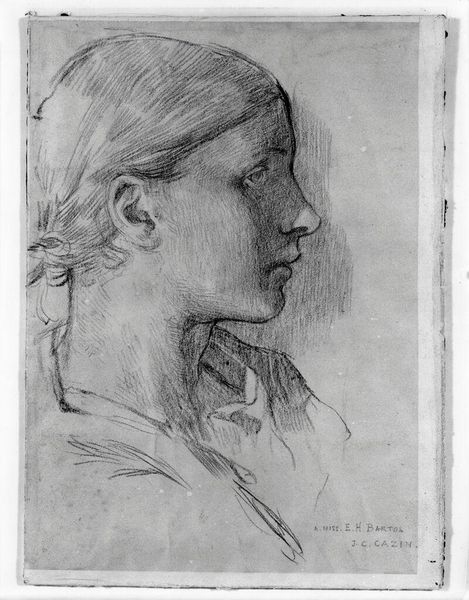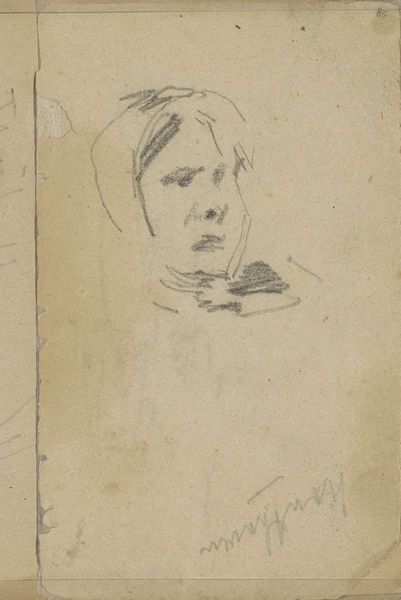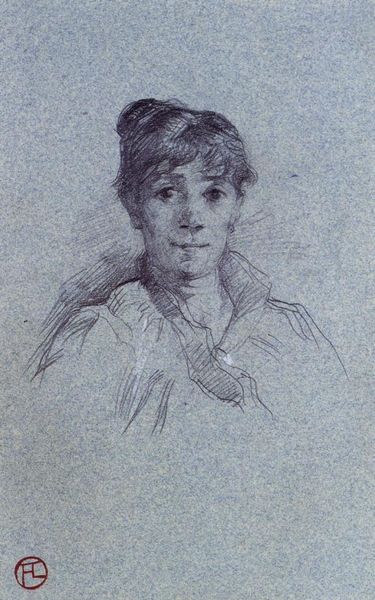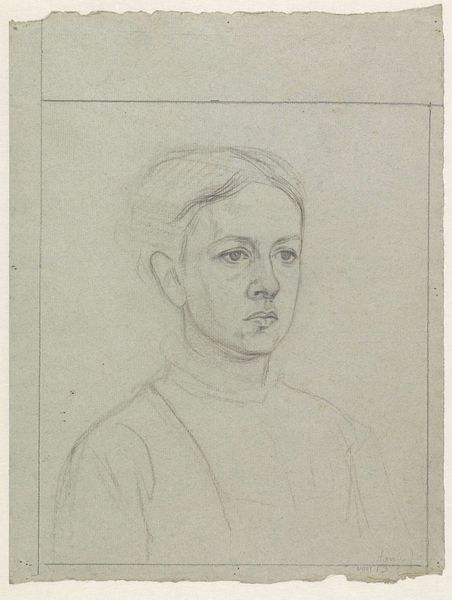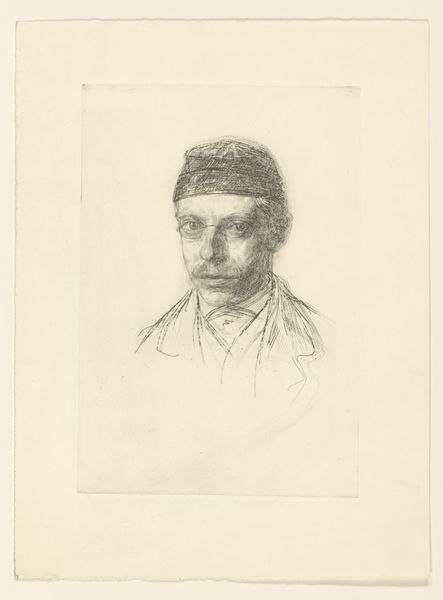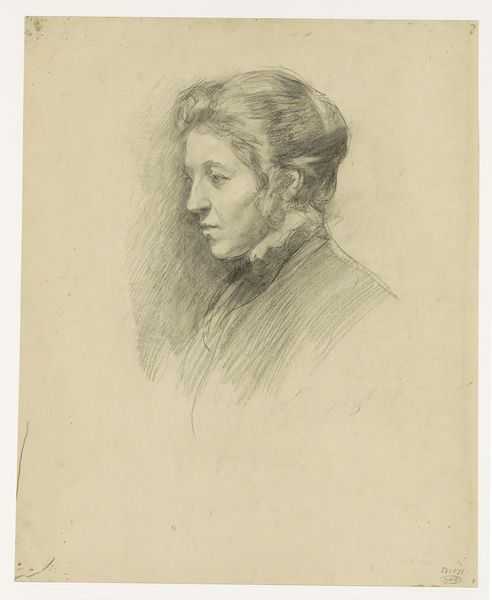
drawing, pencil
#
portrait
#
drawing
#
figuration
#
11_renaissance
#
pencil
#
portrait drawing
#
italian-renaissance
#
early-renaissance
Dimensions: height 267 mm, width 170 mm
Copyright: Rijks Museum: Open Domain
Editor: This is "Portret van een jongen," or "Portrait of a Boy," by Annibale Carracci, dating from around 1585 to 1590. It’s a red chalk drawing, currently held at the Rijksmuseum. It strikes me as incredibly tender and immediate. What lasting symbolic weight might such an image hold? Curator: The directness is key. Portraits, especially of the young, function almost like time capsules. This boy, rendered in the fleeting medium of chalk, represents potential, innocence, perhaps even a lineage. Do you see the way Carracci uses light? Editor: Yes, the light seems to soften the edges, adding to that tenderness. Is there a particular cultural significance to portraiture during the Renaissance? Curator: Absolutely. Renaissance portraiture, unlike earlier depictions, emphasizes individuality. The boy’s specific features, his gaze, even the set of his mouth – these are carefully observed and presented. What does his clothing tell us? Is he noble, or common? It affects the portrait’s resonance across generations. Editor: I hadn’t considered the clothing so directly. He’s wearing what looks like a simple cap and shirt, maybe indicating a middle-class status? How might that influence its meaning then? Curator: Precisely. It situates him within a rising merchant class, eager to claim its place in history, art, and cultural memory. The image is more than a simple likeness; it embodies the social mobility and humanism central to the Italian Renaissance. Its impact endures precisely because it taps into universal longings and aspirations across time. Editor: So it captures not just an individual, but a shifting cultural landscape. That’s really fascinating! Curator: Indeed! By observing such details, we can unpack a portrait’s many layers and connections across centuries.
Comments
No comments
Be the first to comment and join the conversation on the ultimate creative platform.
